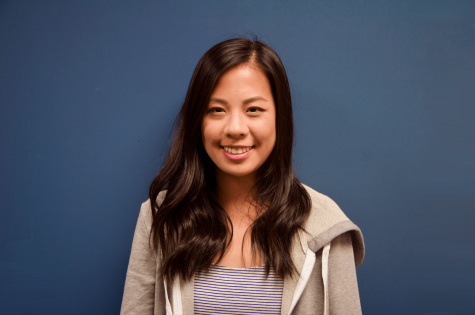Competitive clubs achieve big wins
January 25, 2018
As competition season begins for many clubs on campus, such as DECA, Speech and Debate, MUN and Mock Trial, members hold last-minute meetings and add final touches to their plans. Each club has their own unique way of preparing for their respective competitions, each resulting in exceptional achievements.
Distributive Education Clubs of America (DECA) is an international business club that trains emerging leaders in areas of finance, hospitality and entrepreneurship.
“We break down the events into clusters such as business administration, marketing, finance and operations, and divide the members into their respective clusters,” said senior Vinay Senthil, Vice President of Competitions. “We create presentations covering a small part of the members’ events each week and then provide them with work time to implement the concepts they learned that day.”
In their most recent competitive conference, Silicon Valley Career Development Conference (SVCDC), which took place from Jan. 5 to Jan. 7, Lynbrook had 160 members attend the conference and participate in 44 events overall. The members made up 22 percent of the conference attendees and took home 37 percent of the first place prizes in the events they competed in.
“What really makes our club unique is the people,” said sophomore Cindy Xu, Director of Principles. “Though we all have different interests, we share a mutual love of business. Through DECA, I’ve had the opportunity to meet so many awesome and inspirational people who I look up to.”
During conferences, members take written tests, participate in impromptu speaking events and present their written presentations in their respective events. Every Wednesday for one and a half hours, DECA members prepare for conferences and are given the opportunity to work with officers and cluster captains on their events.
“Conferences are such an incredible experience,” said junior and DECA co-president Abinaya Srikant. “Not only do you get to experience the joys of cramming for events with your roommates the night before, but you also get to interact with students from across the district, state and nation! The adrenaline rush that comes with DECA conferences is irreplaceable.”
On the other hand, Model United Nations (MUN) is an educational simulation activity based club in which students roleplay delegates in committees from assigned countries and help solve world issues such as hunger, poverty or even a country’s financial instability. From the research students conduct to group discussions about their topics, students develop critical thinking, problem solving and leadership abilities.
“I can walk into a room full of strangers and talk confidently,” said sophomore secretary and treasurer Sanjana Narayanan. “MUN is unique, because it’s not a pre-planned thing or something you study for and it’s not just debating or arguing with someone. It requires you to think on the spot and work together.”
Lynbrook MUN holds meetings on Wednesday lunches and study sessions every Thursday after school. Officers go over certain issues relating to their topic and discuss difficulties within a research paper to draft possible resolutions to present to the committee.
“There are a lot of times where you are forced to take your mind off yourself and pursue the common good, and what would be good for humanity in the real world,” said senior Sultaan Ahmad.
Lynbrook MUN attends five conferences per school year; their most recent one on Jan. 11 at the Columbia Model United Nations Conference and Exposition (CMUNCE).
“When you’re in MUN, you get to meet lots of new people, and I think that’s absolutely fascinating,” said junior Charlotte Zhang. “I’ve met people from southern California, a boy from Ohio, an international student from China, and a whole cluster of students from Kenya. Of course, when it comes to other members from our school, with every new conference we attend together, there’s always another shared inside story we can reminisce about together.”
Incidentally, Mock trial is an introductory legal club in which students act out civil or criminal cases and form teams that take the position of either the prosecutor or defense. Every season, teams receive case materials prepared by the California Mock Trial Association, containing cases for the teams to debate over along with the rules of evidence. Teams are scored by attorneys from a scale of one to ten, and the team with the most points wins the round. Judges base scores on preparedness, quality of delivery, knowledge and application of the rules of evidence.
“To be able to compete in a real courtroom, with real attorney scorers, using real evidentiary rules and evidence, is an incredible experience that can’t be emulated in any other club,” said senior and Mock Trial president Alina Wan.
Lynbrook Mock Trial meets twice a week for at least two hours and hold meetings during the weekends for as long as three hours when competition season nears. Members develop skills such as teamwork and critical analysis.
“I enjoy competing and meeting other students from other schools, and practicing with my teammates,” said Wan. “Because we try one case each season, the team [members] get really close with each other . Often, how successful a team is depends on how close and how well the team members work together.”
Lynbrook Mock Trial competes in approximately two competitions per week from late January to March until they are either eliminated or qualify for states. During the rest of the year, however, Mock Trial attends scrimmages monthly, which are similar to the actual competitive conferences, but with no competition.
“It can be a bit intense sometimes, but overall it’s a great feeling to be with your team and working to win your case,” said sophomore Zoe Parkhomovsky. “We get to see a lot of different portrayals of witnesses and how the other team’s attorneys raise objections and present their case.”
Their most recent competition, Empire San Francisco, took place from Oct. 13 to Oct. 15, and featured competitive teams, including former state champions and national contenders. As a result of their hard work, Lynbrook Mock Trial competed in the final round and won second place.
Finally, Speech and Debate is a club that encourages public speaking and helps members build argumentation skills. Members prepare for tournaments under the guidance of their respective event captains. Lynbrook Speech and Debate holds meetings twice a week for two hours. Event captains focus on practice rounds and obtaining feedback from their captains and peers.
“To prepare, I usually present my speech in front of my parents, record myself and send it to some of my peers, and even practice speaking to the wall,” said junior Arushi Gautam, Head of Speech.
Members participate in about five to 15 competitions annually. With eight sections to choose from, members can participate in events from impromptu speeches to debates about policy. With their most recent major competition from Nov. 17 to Nov. 19, the speech team had five semifinalists and four finalists, while the debate team had one quarter finalist and one double octos finalist.
“I participated in humorous interpretation, but I also love social justice, so I did an event called Oratorical Interpretation and performed a speech in the voice of sexual assault victim,” said senior and co-president Neha Palvai. “I have sung “skyscraper”, “hum honge kamayaab”, an Indian patriotic song, and as on off-key, high pitched “opera” singer, who really can’t sing, for my humorous interpretation piece. The sheer variety of events that cater to all interests makes this club so fresh, fun, and everlasting!”
Each of these clubs provide numerous opportunities to learn various aspects from business to law. Members of each club efficiently to produce the results that they have obtained today.



























































